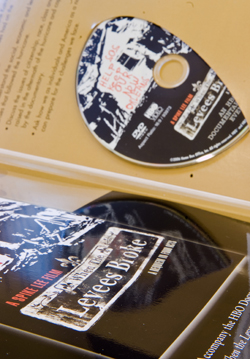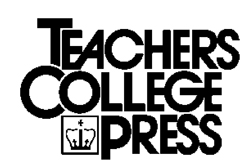Teaching The Levees at TC
Last spring, as TC’s Management Network—leaders of non-academic departments and other functions—pondered ways of creating a stronger sense of community at TC itself, they hit on the idea of using “Teaching The Levees” to get group dialogues going. A special committee in collaboration with the Office of Diversity and Community Affairs has since put together two events, one on June 19 that attracted about 65 employees from all areas of the College and another on October 15 that registered nearly double that number. Each event began with employees viewing a different excerpt from the film in which residents from New Orleans speak candidly about their feelings of having been abandoned by the local and federal government and deprived of their citizenship, and the inescapable sense many had that they were abandoned specifically because they were poor and black.
Afterwards, facilitators from TC’s program in Adult Learning and Leadership mediated discussions in which breakout groups reflected on what they’d seen and shifted the lens back to the world of the College. Guided by the theme of “What Kind of Community Do We Want TC to Be?,” the discussions focused on what’s working at TC—and what could be working better—to build a stronger, more nurturing community; what support from management and the administration could change the picture; and employees’ grass-roots suggestions for improving community functioning.
“The Management Network took President Fuhrman seriously when she said, in essence, ‘You are the community, you’re empowered to do something to help us become the community we profess and aspire to be—one that’s respectful, inclusive and service-oriented,’” says Jeanne Bitterman, a faculty member in TC’s Adult Learning and Leadership Program who created sections of The Levees curriculum that serve adult audiences, and who has helped guide The Levees-inspired employee forums. “Through using the ‘Teaching The Levees’ curriculum, we’re turning a lens on our own lived community of employment and asking, ‘What kind of community are we? And what kind of community do we want to be?’”
The first and most important step, Bitterman believes, has been to bring together people from different areas of the College who rarely engage with one another. Equally important has been to ensure a safe space in which people at all job levels can voice their feelings—a concern that led to the specific choice of “vulnerability” as the theme for the second gathering. “People are feeling especially vulnerable given the state of the economy,” says Bitterman. “So what are the kinds of supports they would like our community to offer in such a time?”
Suggestions for change that have grown out of the meetings include holding “fear of retribution workshops” for supervisors and managers—an idea that reflects some employees’ feeling that they may be penalized for voicing concerns about how they are treated or even for attending gatherings like the “Community Building” forums themselves.
Another suggestion is for the College to make its resources in TESOL (the teaching of English to students of other languages) available to union employees, many of whom do not speak English as a first language.
There is a request that a similar community-building event be hosted for students. That event is in the planning stages now for the early spring semester and is tentatively set for March 4.
Bitterman, who has written a report to the community on the outcome of the first meeting, says response to the first two meetings has been overwhelmingly positive, but that much work remains to be done.
“TC is an institution that professes to be a leader in knowing how to promote inclusivity, but too often we do our work with an eye to the external community and not to the community within these walls,” she says. “Obviously, if we can’t figure out how to create community here, we have no business trying to help others solve these issues. But the really encouraging thing is that I believe that the senior leadership of the College, inclusive of President Fuhrman, believes in this effort—and that TC really is the kind of place where people are sincere about pondering these questions and trying to make life better and more just. And I think we’re taking steps to do that.”
“While the Office for Diversity and Community Affairs has been working on TC’s systemic community challenges over the recent years, sustaining improvements cannot be done without everyone’s consistent participation,” says Janice Robinson, Vice President for Diversity and Community Affairs. “It is President Fuhrman’s support and public recognition of the importance of diversity, inclusion and community that helped initiate these dialogues.” Robinson herself is a believer that change does come and that educational institutions should never cease to work for it.
One result of the October event is that focus groups are planned in December and January. The purpose is to seek the participants’ thoughts for action steps and ideas for the spring
The committee that organized the “Community Building” events consists of Bitterman; Robinson; Jolene Lane, Director for Diversity and Community Affairs; Jacquie Spano, Director of Administration in the Office of the President; Stephanie Straffi, Director of Principal Gifts in the Department of Development and External Affairs; Ena Haines, Director of Information Technology; and Mark Noizumi, Director of Finance and Administration for TC’s Campaign for Educational Equity. The events are co-sponsored by the President’s Office for Diversity and Community Affairs and TC’s Management Network. Copies of the report from the organizing committee can be obtained at www.tc.columbia.edu/news/article.htm?id=6764.
Published Tuesday, Jan. 6, 2009



